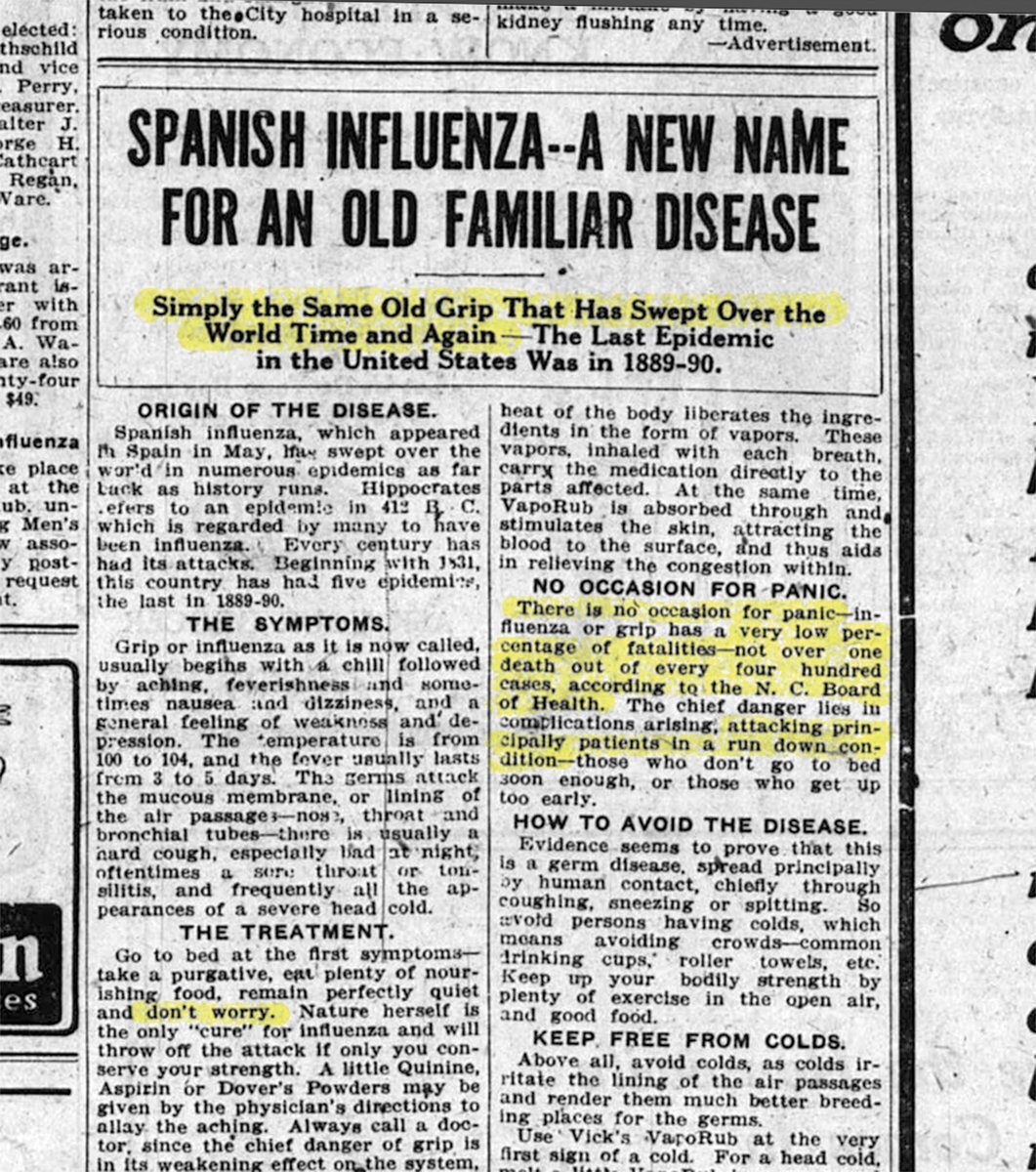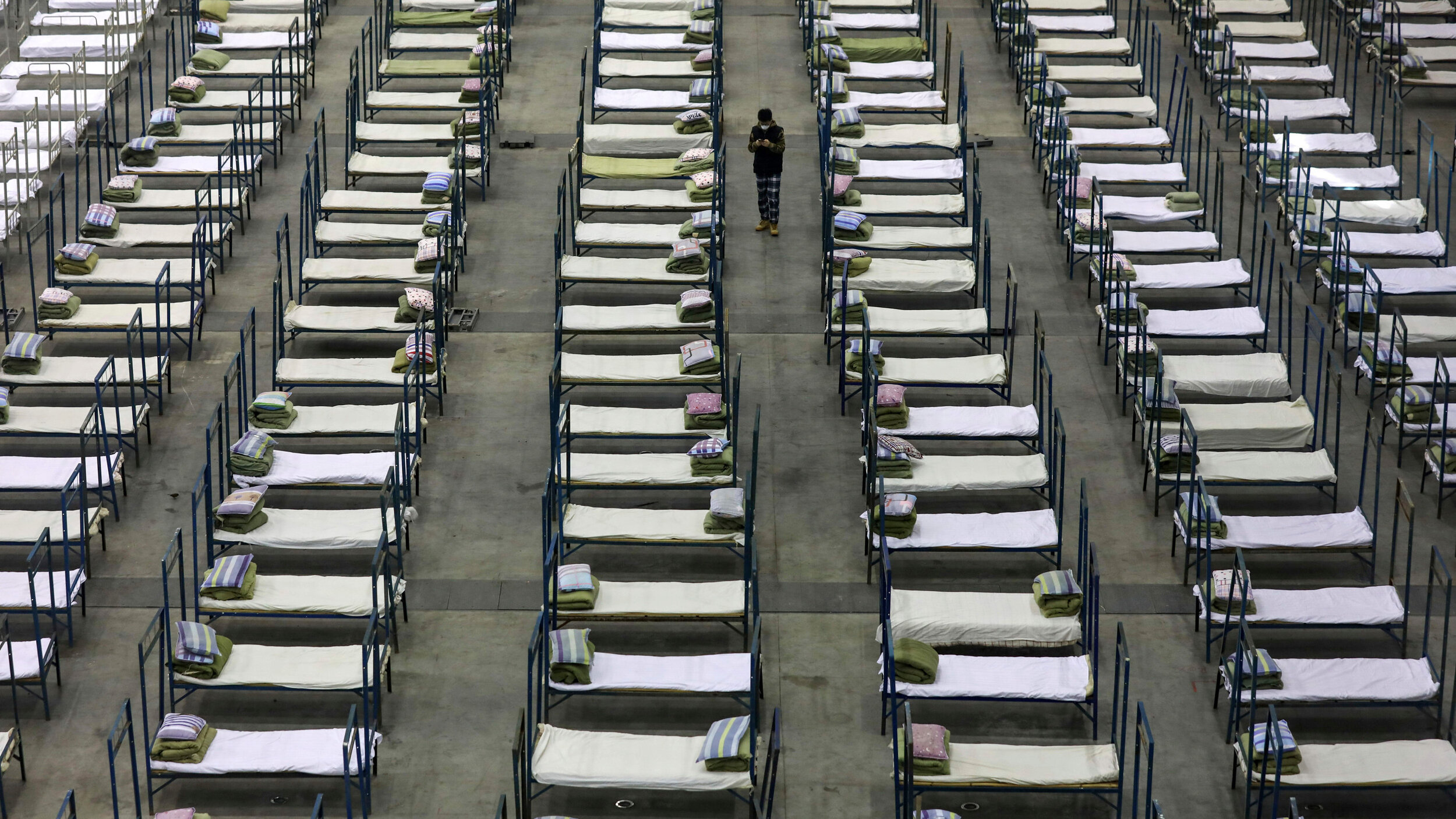Coronavirus Overview
I’ve been hearing so many different things about Coronavirus / COVID / COVID-19
So, here’s a list of what I think is most important to educate yourself on:
1) Supply chain disruption - likely true, especially where it pertains to medications and medical equipment. Much of our pharmaceutical supply chain depends on components from China, if you have a chronic condition it might be worthwhile to speak to your doctor about how to manage in this situation. Even Amazon had something to say to their employees. It is quite possible there will be a market impact and subsequent correction.
2) You can catch it twice - possibly true. Like Dengue Fever, there is speculation that COVID-19 may act via Antibody Dependent Enhancement: meaning that subsequent infections can trigger a more severe immune response and acute respiratory distress. This impacts how we might create a vaccine and is backed up by experts. Catching COVID-19 may not protect you from further infection, so it’s best to keep up good hygiene by learning to stop touching your hair and face and washing hands frequently. It’s also reasonable to limit large unnecessary gatherings and switch virtual elbow bumps for handshakes.
3) It may be spreading without adequate detection. There are a number of factors affecting detection - faulty test kits, false negative tests, possible asymptomatic spread (lots of back and forth), and long incubation periods all effect our ability to stop spread. In addition there have been issues reported in our management of quarantines in multiple situations, in one case leading to a petition by detainees requesting tests.
4) How bad is it really? Is it just the flu!?
If you want a really great source of easily digestible information, I recommend Dr. John Campell’s videos.
This one focuses on how you can protect yourself and your family.
I do think this is worse than we realize and that we really are seeing just the “tip of the iceberg.”
When’s the last time the flu killed an entire family, and a wealthy, well-educated one at that?
(unsubstantiated video) When’s the last time we welded buildings shut over the flu?
(unsubstantiated video) When’s the last time a nurse reacted this way to catching the flu from a patient?
Here is a report from a doctor on the front line on what he is seeing on the ground, take it as you will.
(unsubstantiated video) Chen Qiushi is a Chinese Lawyer and citizen-reporter who bravely reported from Wuhan before contact with him ceased. Here is a list of all of his videos, you can draw your own conclusions.
This footage is also unsubstantiated and created in a dramatic manner, so do take it with a hefty grain of salt. Some footage being posted have been mashups of discounted videos (such as a video of a family affected by carbon monoxide and others, but there’s a gist here).
If there are two takeaways from these clips, the first is that we must have compassion for the people most affected, the second is that we must prevent the same outcome from happening elsewhere.
5) Reported community spread exists in several places. Singapore has been particularly vulnerable and has been admirable in their approach to response, tracking every case and publicizing locations which infected individuals visited. Initially, they knew how every person caught the disease, but at this point they have confirmed community spread after several patients tested positive and they were not able to figure out exactly how they caught it. Other countries affected include Japan, Vietnam, North Korea(?), South Korea (2), Iran (2), Thailand, Cambodia (2), Nepal(?), and others. Limiting travel with China may help, but is no longer a full picture. What’s important is slowing the spread down so that our healthcare facilities and workers have time to learn how to best treat the virus, so that we can pursue development of vaccines, and so that we keep our hospitals from becoming too overburdened, as that is the real risk here. If we can slow the spread down, we can likely prevent ourselves from some of the worst of this.
This image is from 6 days ago, but is a helpful baseline to get an idea of how fast this is moving:
Here is a live map of confirmed cases (it works best on desktop).
<https://systems.jhu.edu/research/public-health/ncov/>
The CDC assumes the numbers we are seeing are very much an underestimate.
Professor Neil Ferguson, director of J-IDEA believes we are detecting only a fraction of the cases, and I agree.
I am extremely glad that the USA has broadened our surveillance strategy in line with Singapore’s. Our best hope is to slow down the spread however we can.
China has shifted to screening patients for atypical pneumonia on CT scan - at some inflection point, I do hope we add this to our existing testing strategy, combining both tests for a better picture.
The virus has many routes of spread, and likely additionally spreads through fecal-oral transmission (like many types of food poisoning, potentially accounting for such rapid spread aboard the Diamond Princess). You can protect yourself in a number of ways, including preparing more of your own food, and if you are in an epidemic area, drinking boiled water. Rectal swabs were found to be positive more frequently than oral swabs, and should be added to our diagnostic arsenal.
It is possible, and potentially likely, that we are not picking up all of the cases in our country.
5) Possible ways to mitigate - it’s too early to know, but there is evidence for the use of IV Vitamin C in Acute Respiratory Distress and there are also a number of other hopeful pieces of evidence. Hopefully we can slow the spread while we learn more about the possible utility of blood plasma from cured patients, antiviral medications, Chloriquine (1, 2, 3, 4) and other treatments. To say it again, the biggest thing is doing our part to help slow down the spread to keep healthcare facilities and workers from becoming too overwhelmed to do their job as well as they otherwise could. Roughly 100 clinical trials are currently underway, and we need to give those trials a much time as possible to play out while we slow the spread. A number of groups have announced rapid breakthroughs in their development of the vaccine (which will still need to pass through animal testing and phase 1 trials successfully), and which experts hope will publicly available by next year.
6) What you can do to protect yourself and reduce the risk to those around you:
Reduce the possibility spread however you can - slowing down spread should be a shared goal for everyone, since we all depend on the same resources and those most vulnerable may also have the hardest time protecting themselves.
#1 learn to stop touching your hair and face.
Treat your home like a “clean zone” and outside as a potentially contaminated zone. Learn to take precautions and to put PPE on and take it off properly. Do not mix personnel, physical area zones or transfer items between “clean” and “dirty” zones without proper procedure. Don’t eat or use your computer or phone while wearing PPE. Here are some guidelines. Shower after you return and wash your hair well. Consider gargling with salt water… it might help and is very unlikely to hurt.
When washing your hands, get under your nails and go all the way up to the elbow, really get in there and get clean.
Be aware of cash and money transfers as well as touching public payment terminals, doorknobs, elevator buttons, shared pens, public armrests, handles and other surfaces. If you can avoid using your hand, do, and disinfect your hands afterwards regardless. Consider what surfaces and items may have been frequently touched by others.
Coronavirus can survive on surfaces for up to 9 days. consider disinfecting your phone, surroundings, credit card, cash, packages etc. Here’s how. If you do get a package from an area you are concerned about, you can spray down the outside and leave it sitting for 10+ days before opening it.
Coronavirus can spread in aerosolized droplets - a N95/N100 respirator and goggles can help protect you if you are entering an area you consider to be risky - how you define this is up to you and also depends on where you are located and what kind of a job you work. If you decide to wear protective equipment, knowing when you should change them and how to put them on and take them off properly is important. Learn how to use them properly before using them so you don’t get a false sense of security (above). In the meantime, you can start wearing glasses if you’d like to make it a bit less likely you’ll touch your eyes.
P95 masks help, but may not block 100% of transmission. Masks work only as well as they are fitted. They need to fit snugly and you should not be able to smell odors through the mask. Here is an OSHA guideline on how to fit-test. It should be a bit difficult to breathe through the mask.
Realize that a large number of transmissions of the disease can and may occur in a hospital, pharmacy, or other healthcare setting, where sick people are most likely to go so limit contact with these settings unless you must and consider that this location may be the most important one for people to wear protective equipment around, especially if you have immune system compromise, underlying disease or are a smoker.
If you think you may be infected, call ahead and ask where to go / how and if you should enter the building to avoid contaminating others. I do hope our government will realize the utility of in-home and drop-off testing for some suspected patients.
Sit it out if you’ve been to a high-risk area or are sick, even if you think it’s a minor cold. Those around you will respect and appreciate you being considerate of their health. While surgical masks may not be sufficient to prevent you from catching coronavirus from someone else (you’d need an N95 or N100 if you were knowingly present in an area with exposure), a surgical mask can help prevent spread from you to another person. If you have a cough or cold, and need to go to the pharmacy, wearing one can be a kindness to those around you.
Honor quarantines and respect those around you. Be especially conscious of the personal space of others and be aware of what you’re touching, even if you don’t think you’re sick.
Consider donating plasma if you live in an endemic area.
Ask your doctor or healthcare professional if it’s ok for you to take Vitamin C and Vitamin D. Specifically, a number of people who have the severe side effect, ARDS, tend to be deficient in Vitamin C. Taking Vitamin C may help reduce the likelihood of severe symptoms, and is unlikely to be hurtful. Always ask a doctor or healthcare professional before taking any medicine to find out if it’s ok for you and make sure there are no interactions with your medicines.
There are a number of Traditional Chinese Medicines with reported antiviral activity in SARS - unfortunately, we don’t have good enough studies to draw strong conclusions. Some of these do have toxicity, and are NOT SUITED for everyone. However, there were two herbal combinations I did find that contained several of the anti-viral herbs reportedly active against SARS. We should consider including these types of formulas in our trials and discovery about how to best address the current global situation.
https://www.vitalnutrients.net/viracon.html
https://www.vitalnutrients.net/immune-support.html







![[Archive]: Coronavirus Updates & Response Plan Template, Feb 2020](https://images.squarespace-cdn.com/content/v1/55023fa1e4b0e1c9767aa0cb/1582751838617-HZWSAWDDN226PYCDVFQ6/Coronavirusbeer-e1580316535224.jpg)


